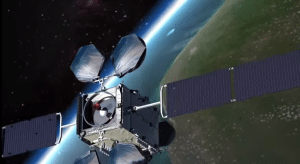Intelsat’s First EpicNG Satellite Exceeding Company Expectations
[Via Satellite 05-02-2016] The performance of Intelsat 29e, the first of Intelsat’s EpicNG High Throughput Satellite (HTS) series, is surpassing the company’s expectations, Intelsat said April 28. Intelsat 29e launched in January and entered service in March following in-orbit testing.
“We are pleased to report that the performance is surpassing our design objectives,” Intelsat Chief Executive Officer (CEO) Stephen Spengler said in a statement. “The tests demonstrate improved throughput on current generation platforms, delivering immediate efficiency benefits to our customers. Tests on next generation networking platforms indicate throughput improvements of up to 2.5 times above the efficiency of wide beam capacity and current platforms, demonstrating the increased value of Intelsat EpicNG.”
Intelsat is focusing on new satellite capacity to grow its revenues. For the first quarter of 2016, which ended March 31, the operator reported $552.6 million in revenue, and Adjusted Earnings Before Interest, Taxes, Depreciation and Amortization (EBITDA) of $417.7 million, or 76 percent of revenue. The company has three other satellites scheduled to launch in 2016: Intelsat 31 on May 28, 2016, and Intelsat 36 and Intelsat 33e in the third quarter of 2016. Intelsat has a total of seven satellite programs in the development and design phase covered in its capital expenditure program. Additionally, the operator has two custom payloads being built on third-party owned satellites, to be known as Intelsat 32e and Intelsat 38, which will not require capital expenditure, and a joint venture satellite, Horizons 3e, with Sky Perfect JSAT of Japan.
“Performance by customer set reflects a continuation of trends that began in the second half of 2015; these trends should begin to be offset as our new capacity enters service over the balance of this year. To that end, our launch and in-service timelines remain largely on track, with a short in-service delay of three weeks for our Intelsat 31 satellite program,” said Spengler.
